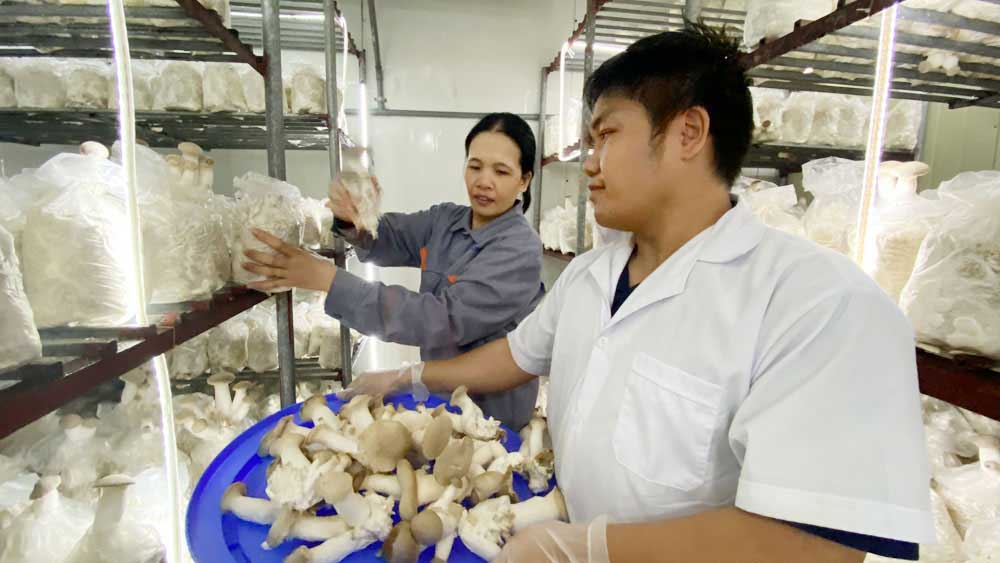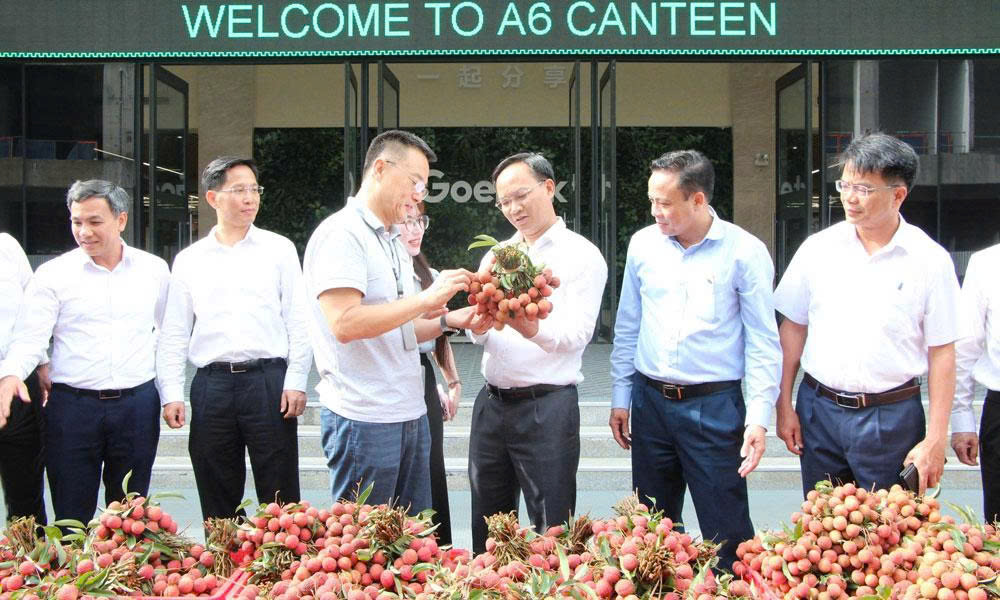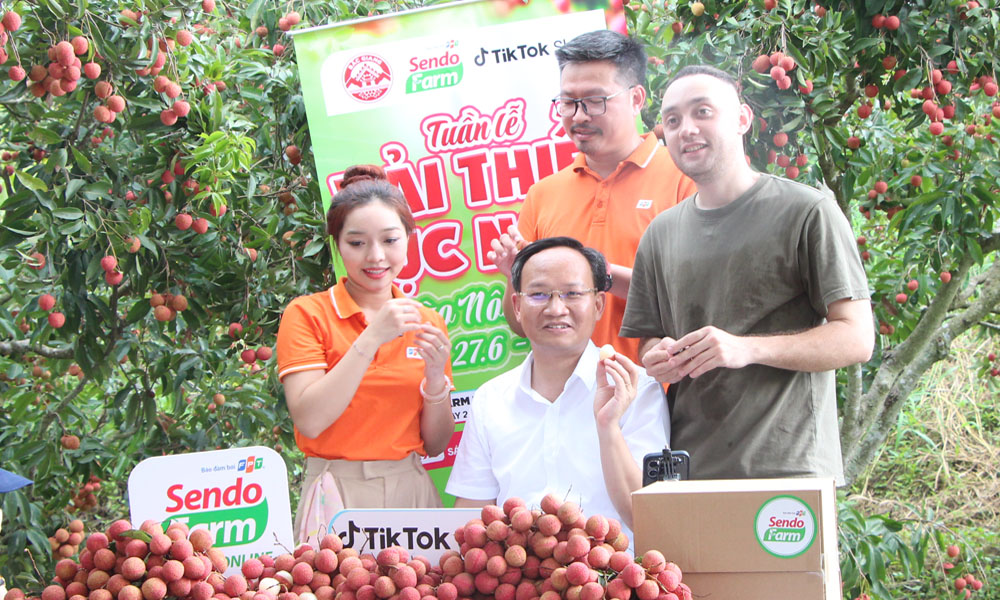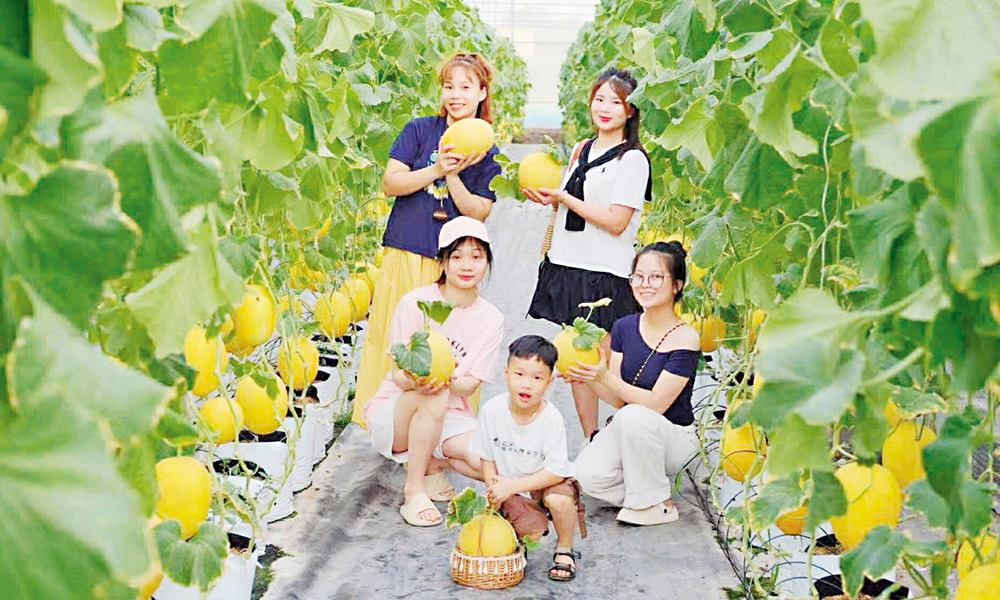Bac Giang increases competitiveness of mushroom products
The Hung Vuong Agriculture and Multi-Sector Development Cooperative in Nghia Hung commune (Lang Giang district) annually produces 300-500 tonnes of mushroom materials and sells more than 100 tonnes of commercial mushrooms of all kinds such as oyster mushroom (Pleurotus ostreatu), Jew’s ear (Auricularia auricula-judae), lingzhi (Ganoderma lucidum), straw mushroom and button mushroom…, earning billions of VND per year in revenue. The cooperative creates jobs for local workers, mainly middle-aged people, thus increasing their income. However, the mushroom production cost is quite high, so there were times the cooperative earned zero profit, even got loss.
 |
|
Harvesting king oyster mushroom at the Toan Cuong Trading and Construction Consultancy Joint Stock Company in Quang Chau commune (Viet Yen district). |
Surveying some markets in the province, enoki, king oyster and spot jade mushrooms (high-class mushrooms that are cultivated in strict conditions), were sold for only 40,000 VND (1.72 USD) per kg, half of the price of mushrooms at local farms. Nguyen Thi Oanh, a staffer of the Toan Cuong Trading and Construction Consultancy Joint Stock Company, said: “We made a fact-finding tour of Long Bien market (Hanoi) and found that the mushrooms like those of my company with unknown origin are sold for only 20,000-30,000 VND (0.86 USD-1.29 USD) per kg. If the company sells its mushrooms at this price, it will suffer heavy losses”. According to Oanh, these mushrooms are brought from China via unofficial channels. They can stay fresh for long under normal conditions.
Despite costs of transportation, packaging, preservation and many intermediaries, the prices of mushrooms sold to consumers are only half or one third of those in the locality.
Regarding this issue, Vu Tri Dong, Deputy Director of the Plant Protection and Cultivation Sub-Department under the provincial Department of Agriculture and Rural Development explained that the prices of mushrooms in the market, especially those originating in China, are cheap because Chinese farmers use modern technology and the yield is high thanks to favourable weather conditions. But in Vietnam in general and Bac Giang in particular, the cultivation of mushrooms, especially high-grade mushrooms, requires high investment in facilities. In addition, the control of pests and diseases on mushrooms is not good. Vietnam is yet to produce mushroom breeds but has to import them from abroad, making the quality unstable and the productivity low. These factors have pushed up the prices of mushrooms in the country.
To fix this situation, the Hung Vuong Agriculture and Multi-Sector Development Cooperative has proposed local authorities provide support in site clearance to help the cooperative expand its production scale and facilitate its application of modern equipment in packaging, preliminary processing and preservation in order to increase productivity and lower production costs. Besides, a number of mushroom production establishments in the province have cooperated with research units to invest in technologies to dry mushrooms and make mushroom rolls and vegan mushroom recipes, contributing to diversifying and increasing competitiveness and value of the products.
Grasping the shortcomings, recommendations as well as advantages of mushroom cultivation in the province, Dong said that in order to increase the competitiveness of mushroom products, in the coming time, the unit will propose supporting appropriate mushroom production models, with priority given to those using high technology and processing mushrooms based on the promulgated mechanisms and policies on supporting chain links and attracting investment in agriculture.
In fact, the mushroom cultivation has been existing in the province for decades, and but now only dedicated people engage in it. Therefore, to develop the profession sustainably, many opinions suggested that facility or equipment support should focus on concentrated production models and model owners who really consider mushroom production a livelihood.
Truong Son
 Bắc Ninh
Bắc Ninh











Reader's comments (0)